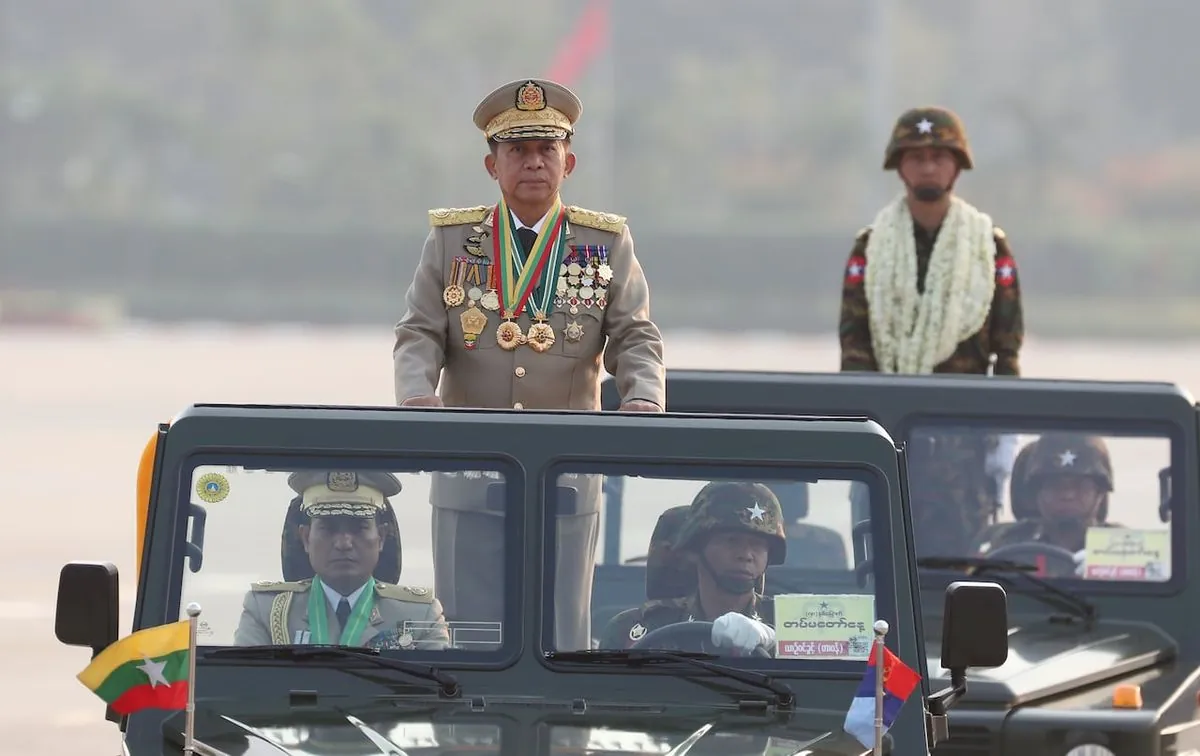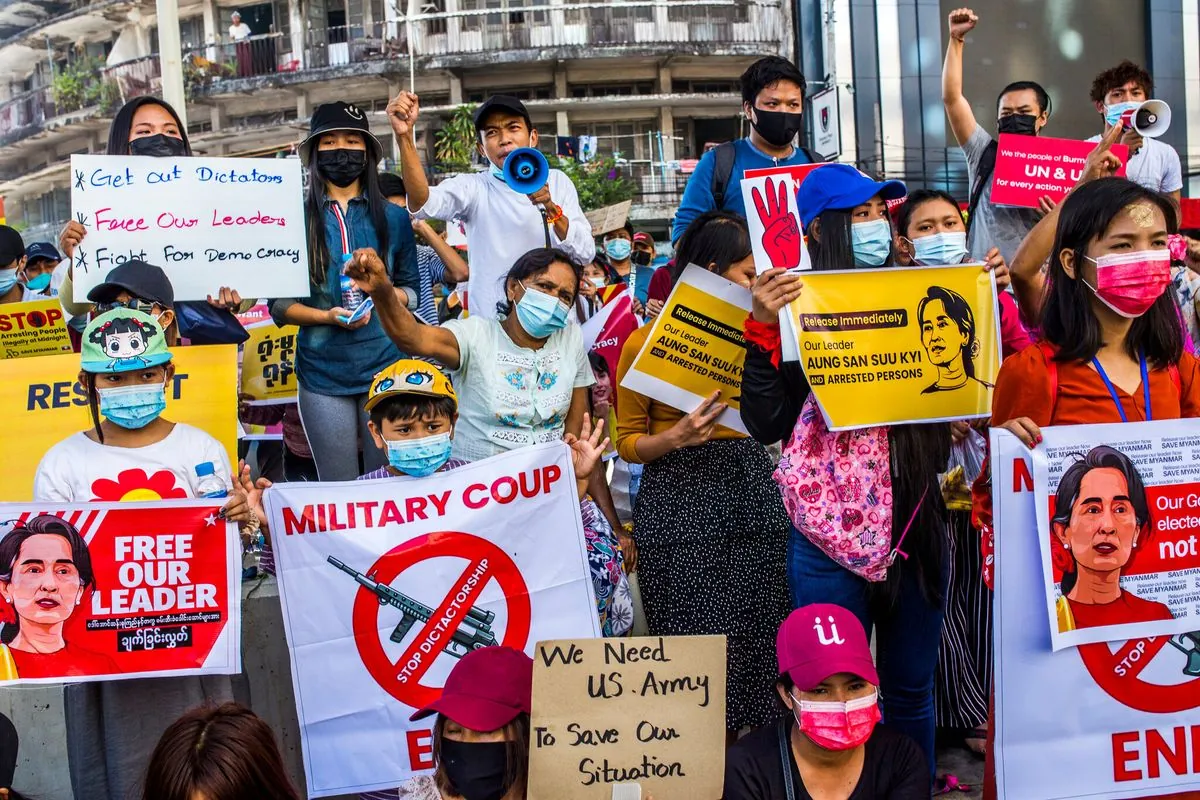Myanmar's Military Regime Announces October Census Amid Civil Unrest
Myanmar's military government plans a national census in October 2024, aiming to compile voter lists and analyze population trends. Pro-democracy groups express skepticism about the regime's election intentions amidst ongoing civil conflict.

Myanmar's military government has announced plans to conduct a national census in October 2024, a move that has sparked controversy and skepticism among pro-democracy groups. The census, scheduled for October 1-15, 2024, aims to compile voter lists and analyze population and socioeconomic trends in the country.
Senior General Min Aung Hlaing, head of the military government, stated that the "ultimate mission" of the ruling State Administrative Council is to hold a "free and fair multiparty democratic election." However, he did not specify a date for the polling, although he has previously pledged to hold an election in 2025.
The announcement comes at a time when Myanmar is embroiled in a civil war, with the military facing significant challenges from pro-democracy militants and ethnic militias seeking autonomy in various parts of the country. This ongoing conflict has raised questions about the feasibility and legitimacy of conducting a nationwide census and subsequent elections.
Myanmar, formerly known as Burma, has a complex political history since gaining independence from British rule in 1948. The country has been under military rule for most of its post-independence period, with brief intervals of civilian governance. The current military regime seized power in February 2021, ousting the elected government led by Aung San Suu Kyi, a Nobel Peace Prize laureate who has been a prominent figure in Myanmar's pro-democracy movement for decades.

The National Unity Government (NUG), a group leading the pro-democracy struggle, has expressed deep skepticism about the military's intentions to hold an election. Nay Phone Latt, a spokesperson for the NUG, advised people to exercise caution when providing information for the census, stating, "If the people give their information to the terrorist organization, it will only use this information to use other methods to terrorize the public."
Critics argue that any election organized by the military would lack legitimacy and be an attempt to normalize its seizure of power through the ballot box. They point out that most leaders of the National League for Democracy party, including Aung San Suu Kyi, are currently imprisoned, and there is no free media in the country.
The security situation in Myanmar poses a significant challenge to both the census and potential elections. According to the Institute for Strategy and Policy, an independent think tank, at least 14,374 clashes have occurred across 233 of Myanmar's 330 townships since the military takeover. Pro-democracy guerrillas and ethnic minority militias have reportedly seized as many as 60 towns, leaving the military in control of less than half the country.
Myanmar's complex ethnic landscape, with over 135 recognized ethnic groups, further complicates the situation. The country's population of approximately 54 million people as of 2024 is spread across diverse regions, many of which are now conflict zones.
"A terrorist group has no legitimacy to hold the elections. Therefore, it is important for the public to exercise caution when providing the information."
Previous attempts at data collection for voter lists have been met with violence. In January 2023, a three-week survey activity was attacked by resistance forces, resulting in casualties and the capture of military government personnel.
As Myanmar grapples with these challenges, the international community continues to express concern over the country's political situation and human rights issues. The ongoing Rohingya crisis has been a major humanitarian issue in recent years, drawing global attention to Myanmar's internal conflicts.
The military government's ability to conduct a comprehensive census and hold credible elections remains in doubt, given the limited control it exercises over the country's territory and the widespread resistance to its rule. As the October 2024 census date approaches, the situation in Myanmar remains volatile, with the prospect of free and fair elections seeming increasingly remote.


































